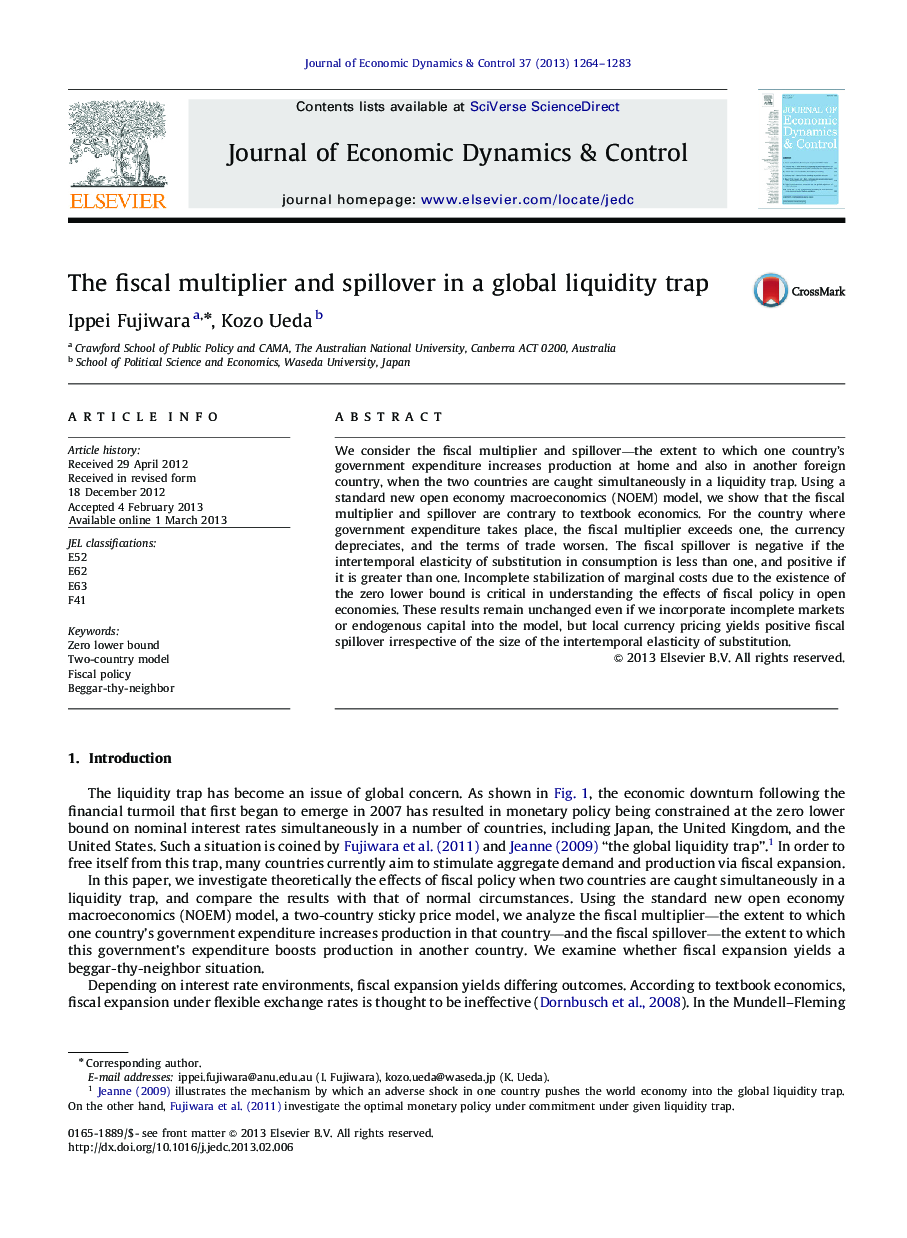| Article ID | Journal | Published Year | Pages | File Type |
|---|---|---|---|---|
| 5098631 | Journal of Economic Dynamics and Control | 2013 | 20 Pages |
Abstract
We consider the fiscal multiplier and spillover-the extent to which one country's government expenditure increases production at home and also in another foreign country, when the two countries are caught simultaneously in a liquidity trap. Using a standard new open economy macroeconomics (NOEM) model, we show that the fiscal multiplier and spillover are contrary to textbook economics. For the country where government expenditure takes place, the fiscal multiplier exceeds one, the currency depreciates, and the terms of trade worsen. The fiscal spillover is negative if the intertemporal elasticity of substitution in consumption is less than one, and positive if it is greater than one. Incomplete stabilization of marginal costs due to the existence of the zero lower bound is critical in understanding the effects of fiscal policy in open economies. These results remain unchanged even if we incorporate incomplete markets or endogenous capital into the model, but local currency pricing yields positive fiscal spillover irrespective of the size of the intertemporal elasticity of substitution.
Related Topics
Physical Sciences and Engineering
Mathematics
Control and Optimization
Authors
Ippei Fujiwara, Kozo Ueda,
